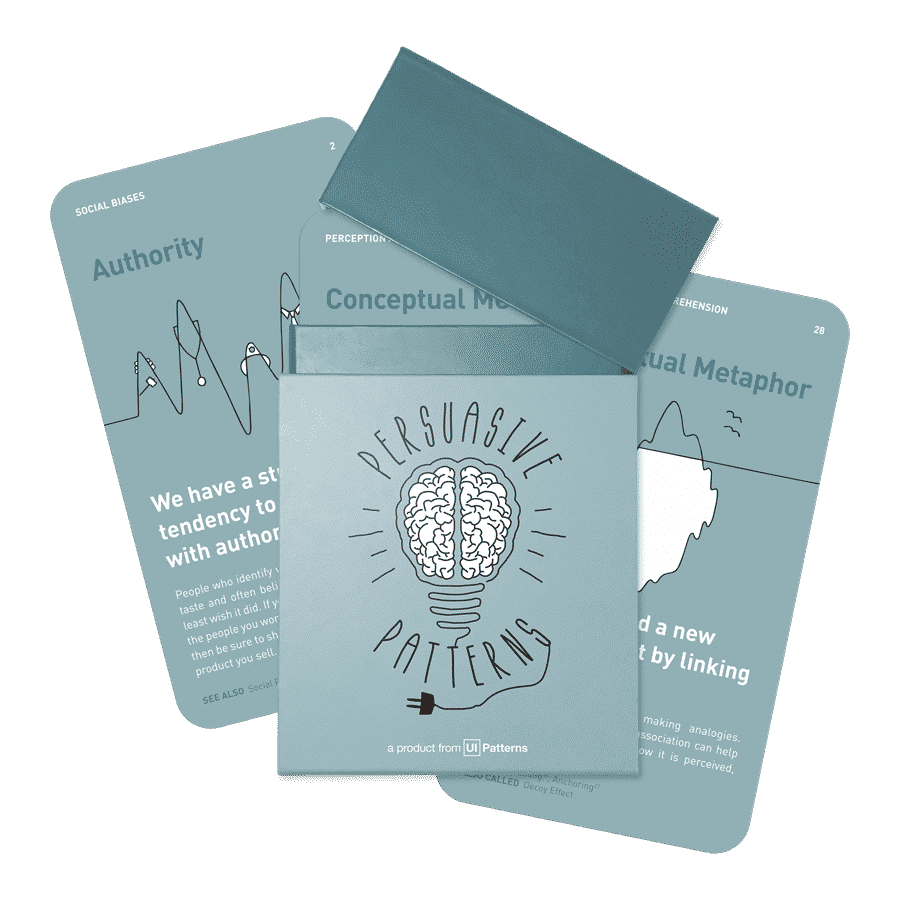The Pratfall Effect: Why making mistakes can make you more likable
Small mistakes can make competent individuals more likable, fostering stronger relationships and boosting self-esteem.
Turn insights into action with the Persuasive Patterns card deck
Master the science behind user motivation and create products that drive behavior.
Get your deck!We’ve all heard the saying “to err is human.” But does making mistakes really have to be a bad thing? Surprisingly, research suggests that our imperfections can actually make us more likable and relatable. This phenomenon, known as the Pratfall Effect, can have a profound impact on our relationships, our careers, and even our self-esteem.

The Pratfall Effect is a psychological phenomenon that describes how making a small, harmless mistake can actually increase our attractiveness to others. This is particularly true when we are already perceived as competent or above average.
The idea behind the Pratfall Effect is that when we see someone who is competent and successful, we tend to idealize them. We may even believe that they are perfect in every way. However, when we witness them making a small mistake, it can humanize them and make them seem more relatable.
This principle can be applied to product development, helping you build stronger connections with your users and improve your product’s overall appeal.
The study
The Pratfall Effect was first demonstrated in a classic experiment conducted by social psychologists Elliot Aronson, Bertram Willerman, and Joanne Floyd. In the experiment, participants were shown a video of a woman who was either extremely competent or moderately competent at a task. They were then told that the woman was going to give a speech.
Before the speech, the woman either tripped and fell or appeared to be perfectly coordinated. The researchers found that the woman who tripped was actually rated as more likable than the woman who did not trip. This was particularly true when the woman was already perceived as competent.
Experiment Details:
- Study: Aronson, E., Willerman, B., & Floyd, J. (1966). “The effect of a pratfall on increasing interpersonal attractiveness.” Psychonomic Science, 4(6), 227–228.
- Participants: A group of individuals.
- Procedure: Participants were shown videos of a woman who was either extremely competent or moderately competent at a task. They were then told that the woman was going to give a speech. Before the speech, the woman either tripped and fell or appeared to be perfectly coordinated.
- Findings: The woman who tripped was rated as more likable than the woman who did not trip, especially when the woman was already perceived as competent.
Applying The Pratfall Effect in design
The Pratfall Effect has a number of implications for our relationships, our careers, and our self-esteem.
- Relationships: By acknowledging our flaws and imperfections, we can build stronger and more authentic relationships with others.
- Careers: Embracing the Pratfall Effect can help us to overcome setbacks and bounce back from failures.
- Self-Esteem: Recognizing that we are not perfect can actually boost our self-esteem. It can help us to accept ourselves for who we are, flaws and all.
In product design, this means that you should strive to:
- Own Up to Mistakes: When your product has a bug or a feature doesn’t work as expected, be honest and upfront about it. Apologize and explain how you’re working to fix the issue.
- Show Humility: Demonstrate that you’re not above making mistakes. This can help your users feel more comfortable and confident in using your product.
- Focus on Your Strengths: While it’s important to acknowledge your product’s flaws, it’s also crucial to highlight its strengths. This will help balance the negative perception of any mistakes and reinforce your product’s overall value.
This will in turn help you:
- Build stronger relationships with your users: Users who feel connected to your product are more likely to be loyal and advocate for it.
- Improve your product’s reputation: A product that is perceived as being honest and transparent can have a positive impact on its reputation.
- Foster a sense of community: By sharing your product’s journey and challenges, you can create a sense of community among your users.
Perfection is often unattain.
Don’t try to hide your flaws or imperfections. Be genuine and authentic in your interactions with others. When you do make a mistake, own up to it and take responsibility. Demonstrate that you are humble and that you’re not afraid to admit your mistakes.
While it’s important to acknowledge your flaws, it’s also important to focus on your strengths and accomplishments.
- The effect of a pratfall on increasing interpersonal attractiveness. by Aronson, E., Willerman, B., & Floyd, J.
